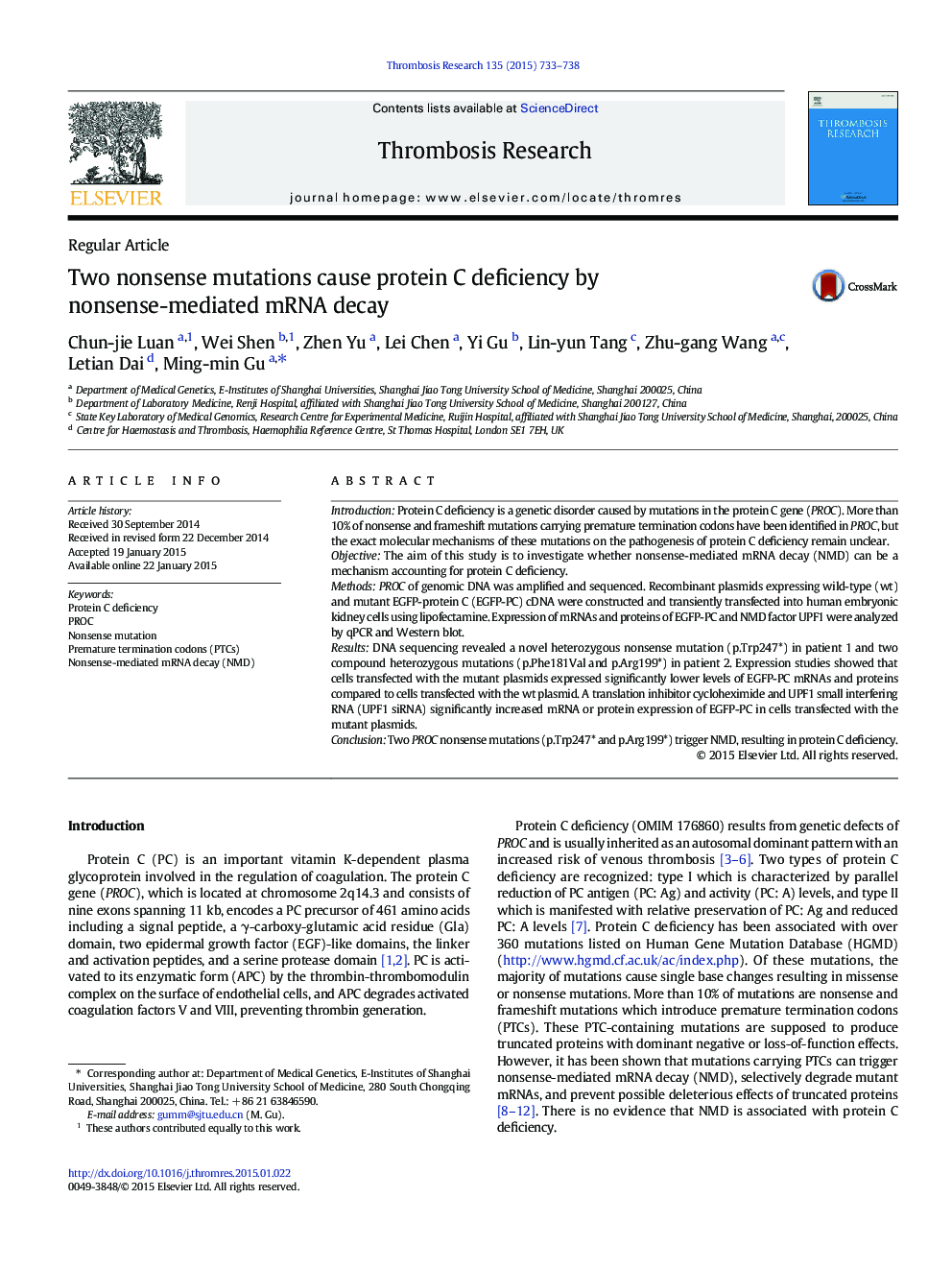| Article ID | Journal | Published Year | Pages | File Type |
|---|---|---|---|---|
| 6000800 | Thrombosis Research | 2015 | 6 Pages |
â¢Two nonsense mutations (p.Trp247* and p.Arg199*) in PROC gene have been identified in two unrelated patients with protein C deficiency. Both mutations were found to trigger NMD in transfected HEK293 cells.
IntroductionProtein C deficiency is a genetic disorder caused by mutations in the protein C gene (PROC). More than 10% of nonsense and frameshift mutations carrying premature termination codons have been identified in PROC, but the exact molecular mechanisms of these mutations on the pathogenesis of protein C deficiency remain unclear.ObjectiveThe aim of this study is to investigate whether nonsense-mediated mRNA decay (NMD) can be a mechanism accounting for protein C deficiency.MethodsPROC of genomic DNA was amplified and sequenced. Recombinant plasmids expressing wild-type (wt) and mutant EGFP-protein C (EGFP-PC) cDNA were constructed and transiently transfected into human embryonic kidney cells using lipofectamine. Expression of mRNAs and proteins of EGFP-PC and NMD factor UPF1 were analyzed by qPCR and Western blot.ResultsDNA sequencing revealed a novel heterozygous nonsense mutation (p.Trp247*) in patient 1 and two compound heterozygous mutations (p.Phe181Val and p.Arg199*) in patient 2. Expression studies showed that cells transfected with the mutant plasmids expressed significantly lower levels of EGFP-PC mRNAs and proteins compared to cells transfected with the wt plasmid. A translation inhibitor cycloheximide and UPF1 small interfering RNA (UPF1 siRNA) significantly increased mRNA or protein expression of EGFP-PC in cells transfected with the mutant plasmids.ConclusionTwo PROC nonsense mutations (p.Trp247* and p.Arg199*) trigger NMD, resulting in protein C deficiency.
